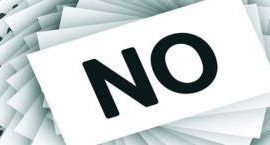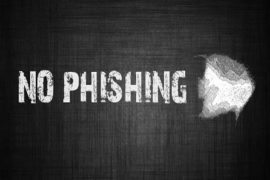Our online privacy is under attack more than ever. Everyone from Internet Service Providers, advertisers and government agencies is interested in your private data and wants to know what exactly are you up to when you browse the Internet.
 In spite of the seemingly innate number of malicious attacks, a recent Pew Research Center study revealed that US citizens feel powerless to protect themselves against intrusions on their privacy. Furthermore, only a handful of Americans does much in the way of taking preemptive, privacy-enhancing measures. Today, we rely on the Internet to communicate, search for information, shop for clothes, etc. Thanks to free Wi-Fi hotspots, it is convenient to for us to stay connected when we are away from home but this leaves us open to identity theft and invasion of our privacy as well.
In spite of the seemingly innate number of malicious attacks, a recent Pew Research Center study revealed that US citizens feel powerless to protect themselves against intrusions on their privacy. Furthermore, only a handful of Americans does much in the way of taking preemptive, privacy-enhancing measures. Today, we rely on the Internet to communicate, search for information, shop for clothes, etc. Thanks to free Wi-Fi hotspots, it is convenient to for us to stay connected when we are away from home but this leaves us open to identity theft and invasion of our privacy as well.
The good news is that it’s not that hard to stop someone’s ability to spy on your activities –it’s not like cyber thieves are using some new and advanced tech to do it. On the contrary, they have been using the same malicious software for years. One way to reduce your vulnerability to most of the online threats is using a Virtual Private Network. A VPN makes it nearly impossible for ISPs, hackers and even the government to watch what are you doing on the Internet.
What is a VPN?
Essentially, a VPN is a piece of software that lets you connect to a secure, private network through a public network, such as the Internet. When you connect to a VPN, every single bit of data that is sent and received between sites and your device is first and encrypted and then sent through a remote server. These private networks have a number of different uses including:
- Hiding your online activities from various identity thieves and data brokers
- Helping you evade government censorship
- Allowing you to protect your personal information when using a public Wi-Fi connection
- Letting you access geo-blocked content on streaming sites like Hulu and Netflix
How Does a VPN Protect Your Online Privacy?
VPNs protect your privacy in many different ways, but let’s cut to the chase, and talk about the three most important ones:
· Hiding your IP Address
When you connect directly to one of on the servers provided by your VPN SP, you adopt the IP address of that particular server. This will hide your real IP, your real location, and make you appear as if you are somewhere else.
· Encrypting Your Data
So what is encryption anyway and why is it so important? Well, it means that a VPN changes your data from its original form, into data that no one can decipher. So if a hacker intercepts your data somehow, instead of your private data, he will only see a bunch of indecipherable gibberish.
· Redirecting Your Data to a Third Server
As we mentioned before, VPNs redirects all of your incoming and outgoing data through a secure server. So if people try to track your browsing, they will not be able to see your device or the sites you’re visiting, they will just see the server you’ve been redirected through.
Best VPN Service Providers
For starters, when it comes to choosing a VPN service provider, we have to mention that even the cheapest VPN provides more privacy-protecting features than the best free provider. So if you want to be completely sure that your private data is safe 24/7, find an economical, reliable VPN provider and protect yourself properly. But enough small talk, let’s discuss the best providers on the market today.
1. PureVPN
This is a great service provider for many reasons, but when people talk about PureVPN, they mostly like to point out that it has more than 450 servers in more than 100 countries around the world. You also have 80,000 different IP addresses to cycle through, so you will never have to worry about the visibility of your true IP address.
2. ExpressVPN
If you’re a first-time VPN user, then ExpressVPN is perfect for you. The service is well-known for the ease-of-use of their interface, their apps (Windows, Mac, Android and OSX) and their great customer support. It has servers in 80 different locations, and as many ExpressVPN reviews like to point out, the company even has special “stealth” Hong Kong servers, which are great for travelers.
3. Buffered
Most VPN providers keep extensive records of your browsing activities, but Buffered keeps only the connection logs. And these logs cannot reveal anything about your online actions. It also allows you to connect up to three different devices (desktop PCs, laptops, smartphones, tablets, etc.) at the same time and has a month-long money-back guarantee.
4. SaferVPN
SaferVPN has servers in 24 different countries and accepts payment in Bitcoins, so if you want to remain anonymous even during the purchase process, this is the right provider for you. It is great for Windows Mobile users that are mostly ignored by VPN services because it uses the IKv2 security protocol to encrypt your data.
Paranoia is Sometimes Justified
While most people feel like they have nothing to hide, it doesn’t mean anyone of us shouldn’t enjoy the benefits of online privacy. And even though it is a lot easier to pretend like the NSA or your Internet Service Provider isn’t watching every move you make, you have to aware of the truth and do something about. What you watch, read and browse is your business, and your business alone and is the perfect time to stand up for yourself and take back your online privacy.




